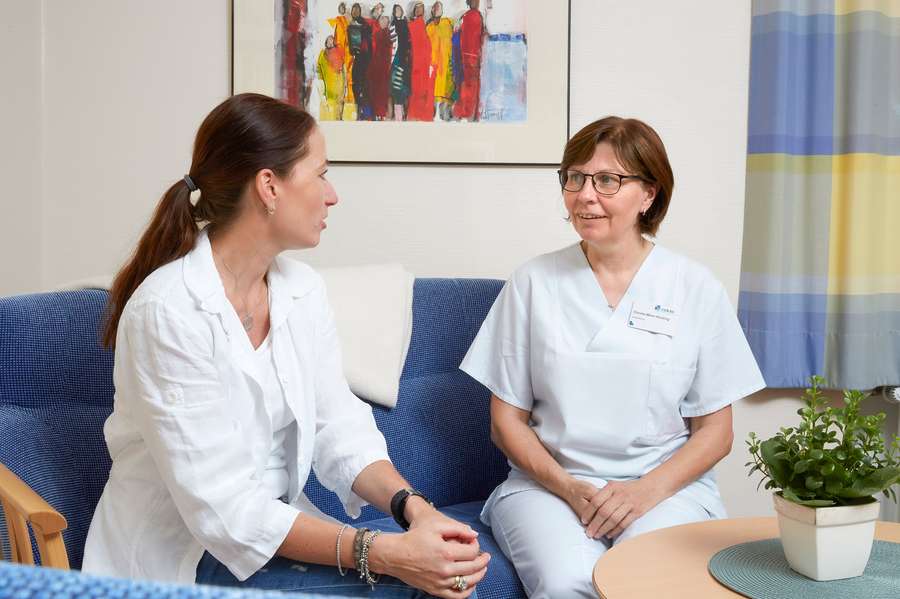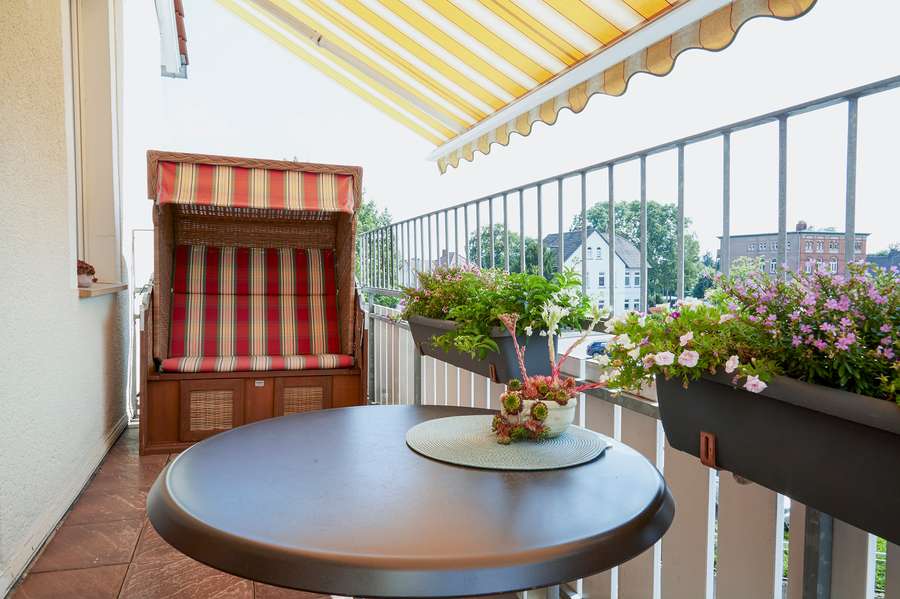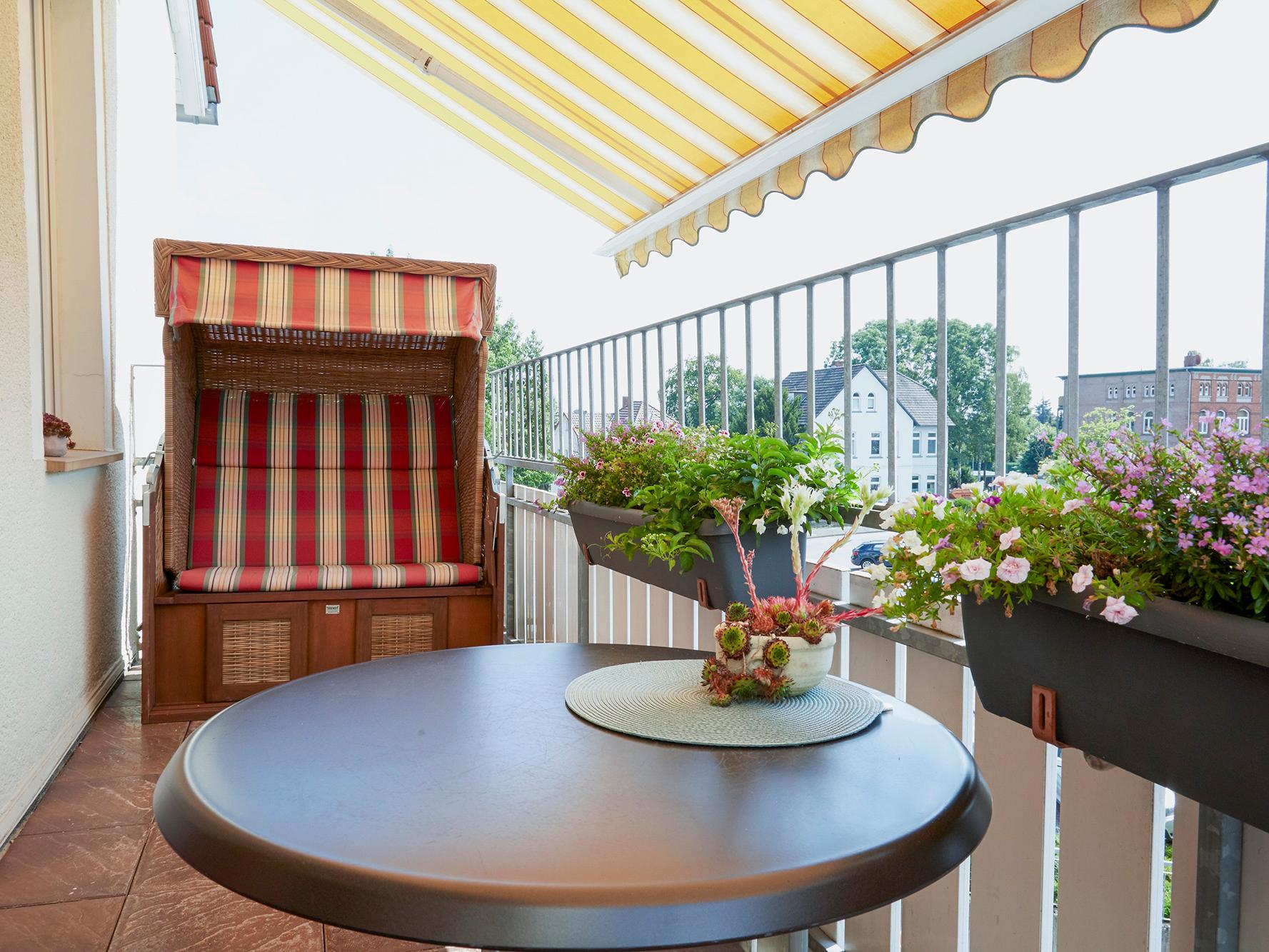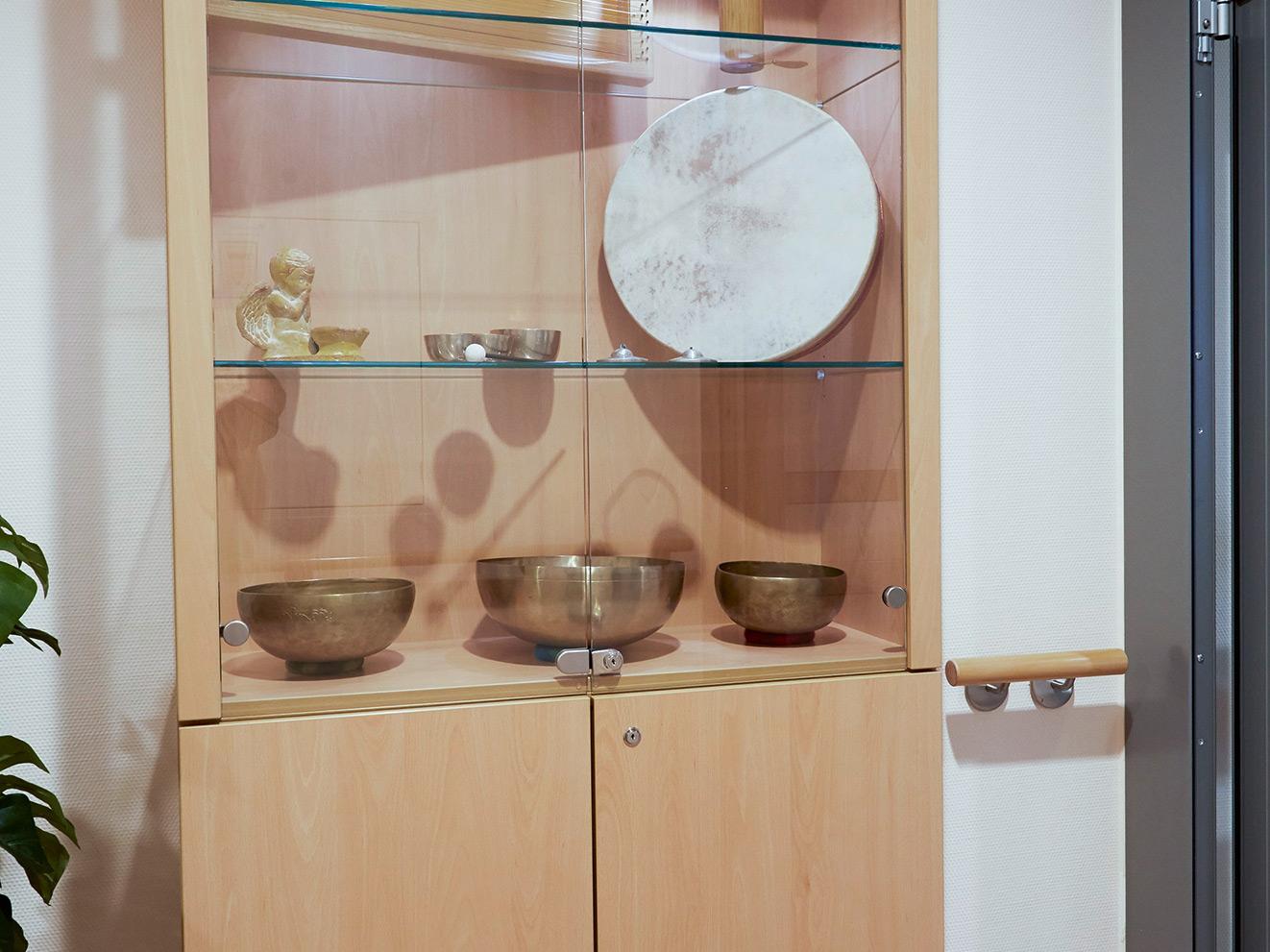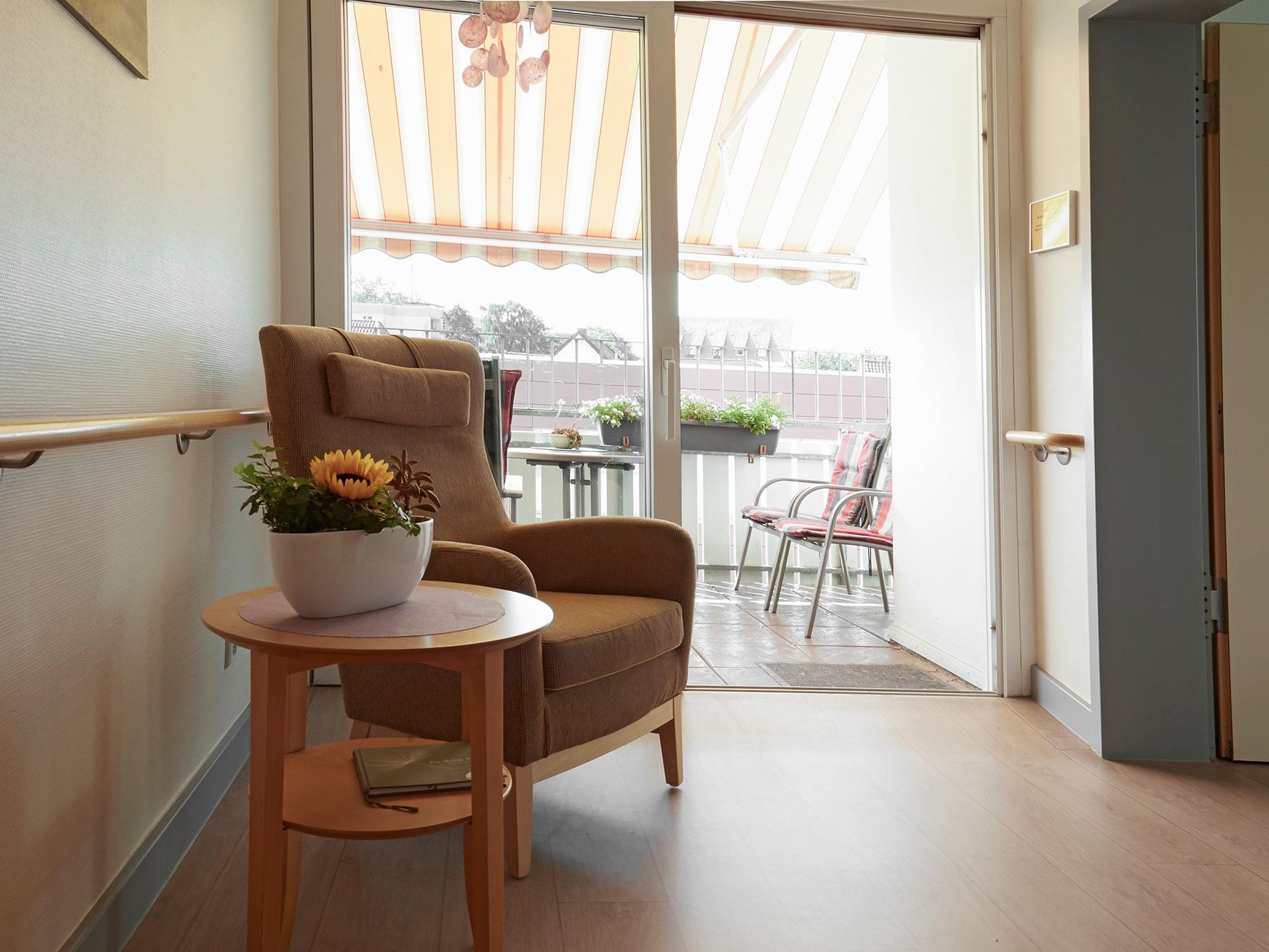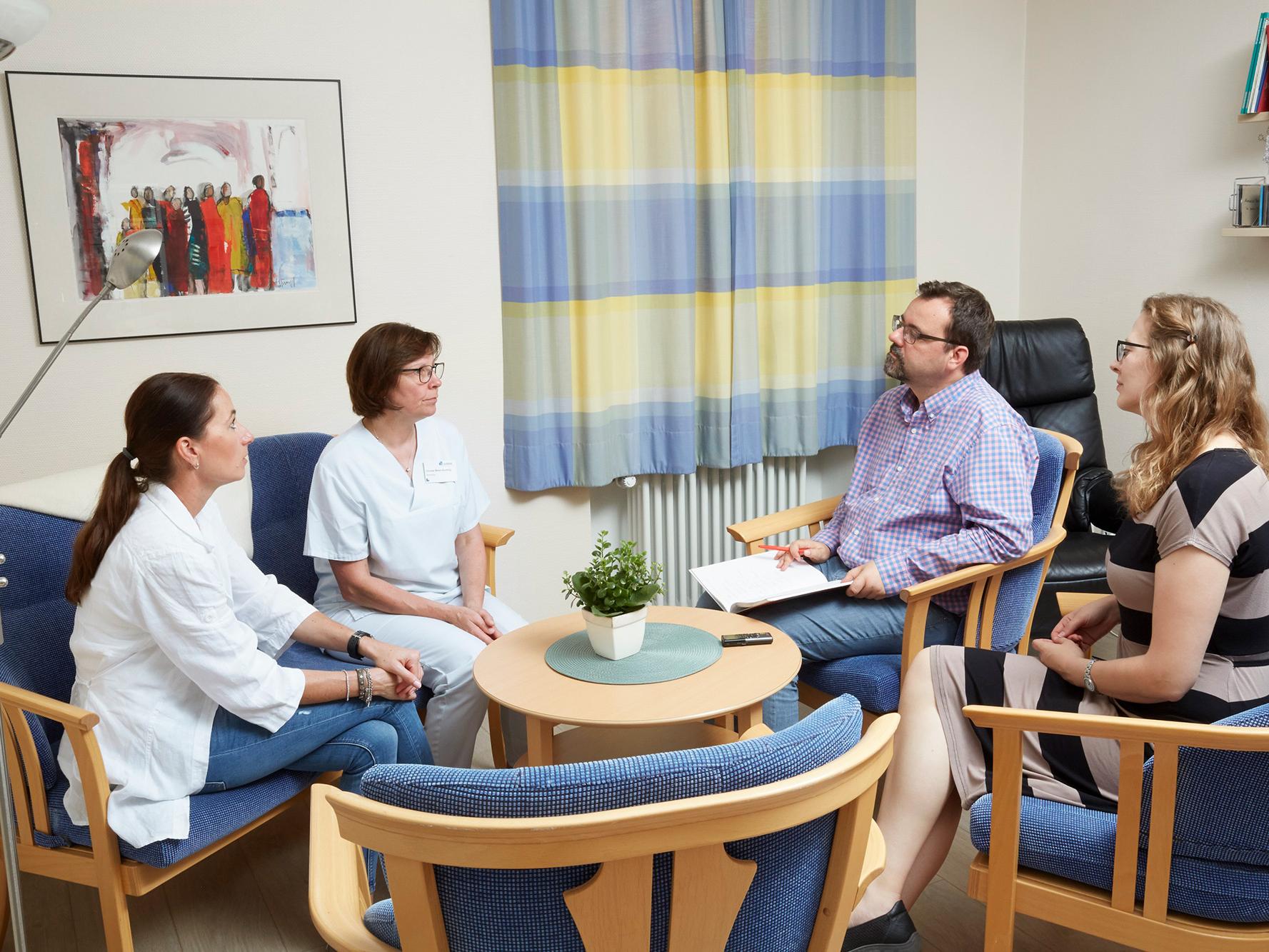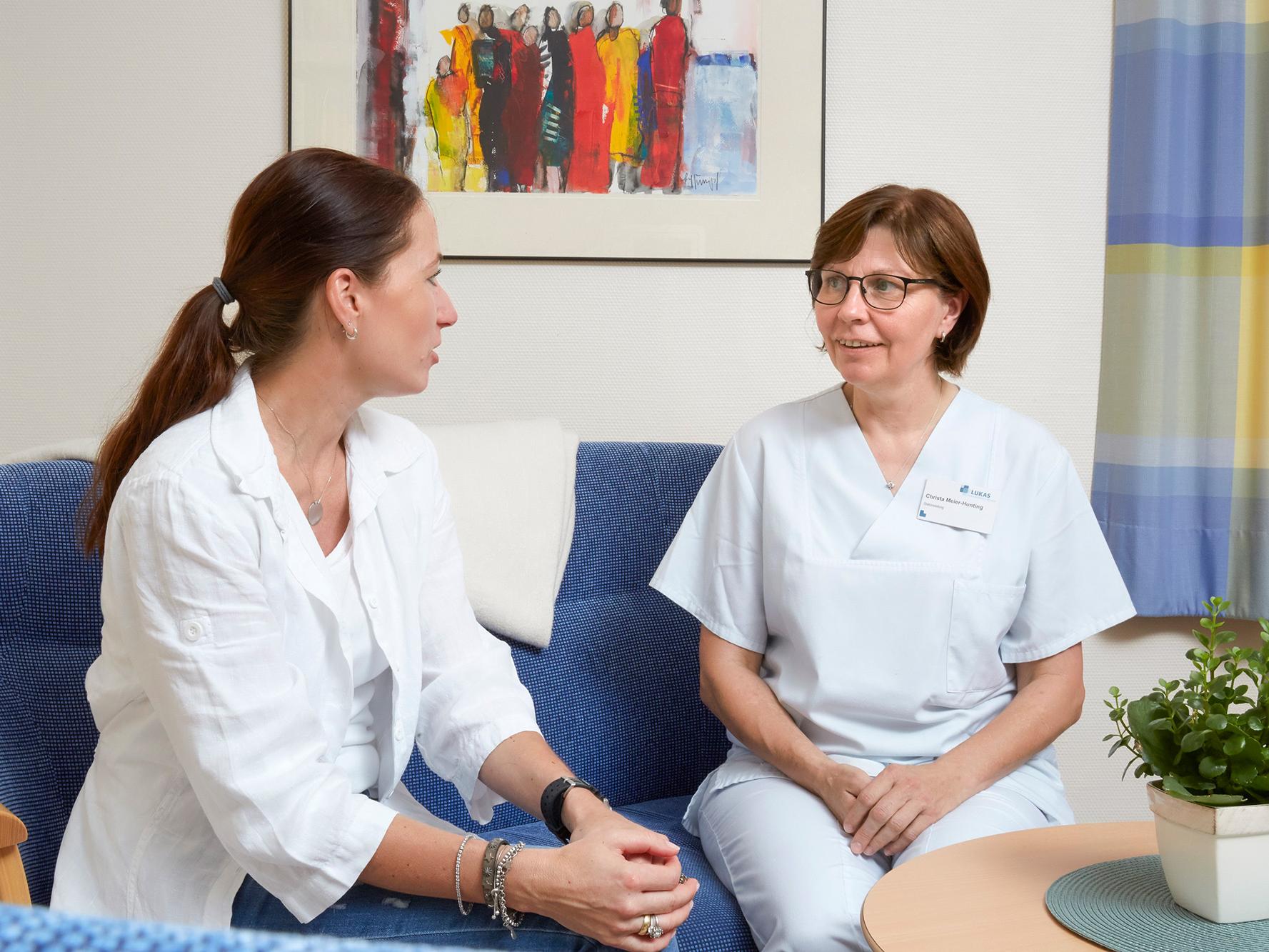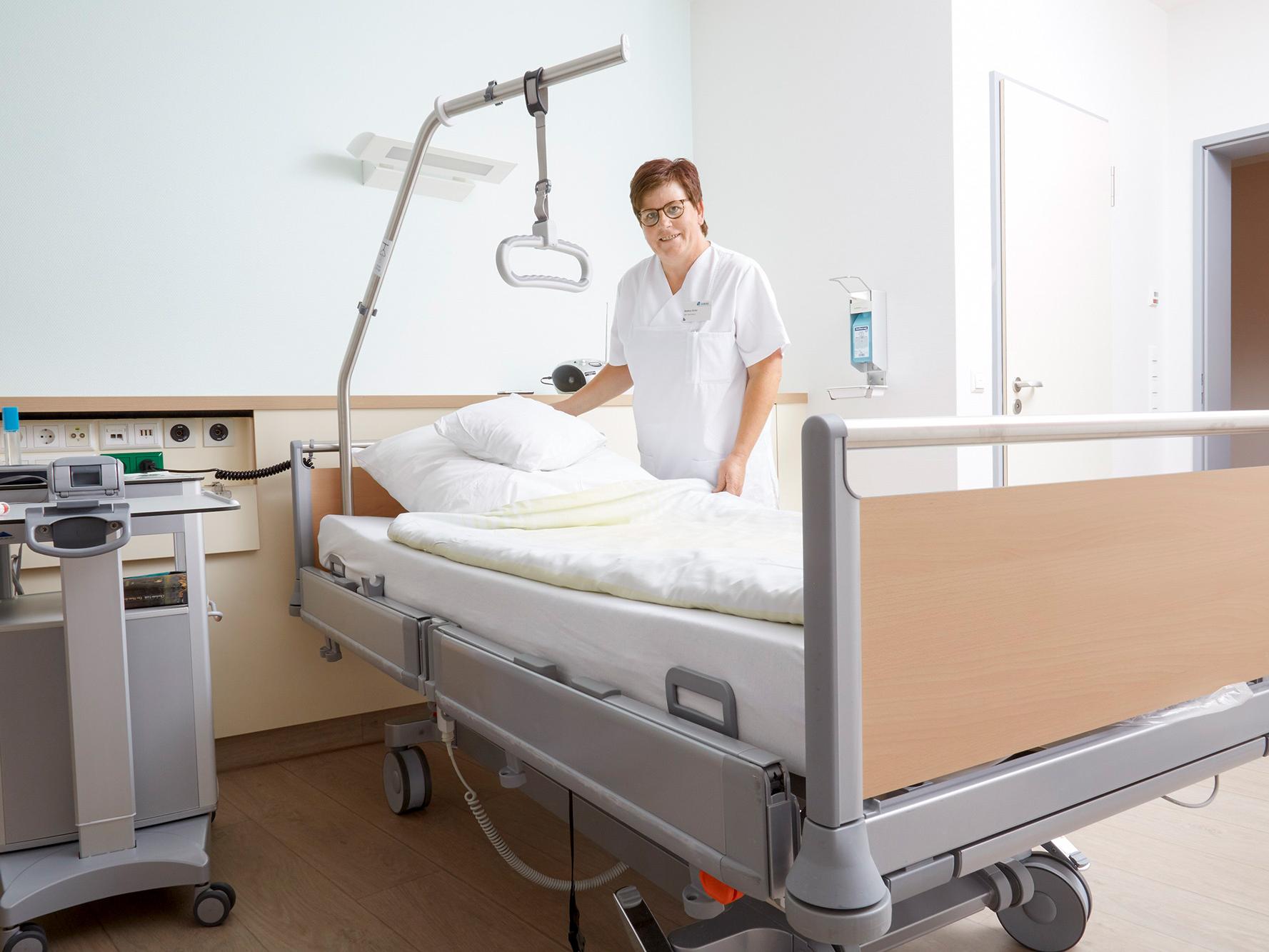
“Here we laugh and we cry”
A morning at the palliative care ward of the Lukas Hospital in Bünde: Ward manager Christa Meier-Hunting and her colleague have a lot to do this morning, because there are new admissions. But there are no signs of stress or tension in the ward’s comfortable living-kitchen. The atmosphere here makes you feel at home right away. A patient has just moved into the room opposite. She smiles across at us. The ward is quiet and separated from normal hospital operations and has been renovated in a modern style. Everything is home-like and cosily furnished. There are four single rooms and two double rooms in the ward.
Nurse Christa, how long has the palliative care ward at the Lukas Hospital been in operation?
This year we are celebrating our 20th anniversary. We started in 1999 with six beds and today we have eight.
How long do people stay with you?
The length of stay is limited. This is what distinguishes us from a hospice. We are not a long-term care establishment. We discuss the matter of further care with the patient, relatives and social services.
Do most patients come here to die?
No, we are not a terminal ward, although it does happen that people die here, of course. But often the patient goes on to home care, a nursing home or a hospice. The average age of people is not very high. At the moment we have many patients who were born between 1950 and 1965. Many of the patients have an oncological or neurological disease.
What treatments do people receive on the palliative care ward?
In the palliative care ward, we care for patients who are suffering from an advanced and incurable disease. Our goal is to provide the best possible quality of life for their remaining time. This includes ensuring physical well-being without pain, nausea, shortness of breath or other stressful symptoms. However, psychological stability and a positive approach to anxiety are also important.
What kind of daily routine do the people on your ward have?
We try to make the daily routine as personalised as possible. This ward is also part of a hospital, however, and we are dependent on the organisational circumstances. These include set times, such as for the handover from the early to the late shift.
Do you offer music therapy?
Yes. There is singing and music making. Depending on what the patient would like. Take a look at our beautiful music cabinet, in the corridor, which was financed by donations. We have a monochord (a string instrument) and a guitar, for example. Our singing bowls are also kept in the cupboard.
Do some people spend their time here without any relatives at all?
Yes, this happens more and more often now. Family life is becoming generally more complicated. Sometimes, for example, people have not been in contact with their own children for a long time, but at the end of life would like to see them again. We try to support them in this. We always put the patient's wishes first.
Everything looks comfortable and well maintained. How did you go about furnishing the rooms?
The furniture for the ward was chosen very carefully by an interior designer in collaboration with the former and the present director of nursing care. The ward has also grown. New ideas are always being put into effect. Four years ago, for example, a lectern for the guest book was purchased.
Does this pleasant atmosphere help reduce the patients’ anxiety?
We want to give the patients and their relatives a feeling of safety and security with our home-like atmosphere. In seven years, I have not met a single person who has left us or died and who did not feel comfortable during their time with us. It is also always important for us to support the relatives in learning to live positively with their grief. There are very different constellations here. We may have a 40-year-old mother with small children grieving for her, or an 80-year-old mother mourning the death of her 60-year-old child.
How many employees work on the palliative ward?
We are 12 carers, including full-time and part-time staff. Our care staff work in a multi-professional team with a palliative care physician, a social worker, a pastoral worker, a physiotherapist and a psycho-oncologist. Our work is supported by volunteers from the hospice group.
You use the Puro hospital bed from Stiegelmeyer, a model with many adjustment options that makes working with and around the bed easier. Do most of your patients need a great deal of care?
Yes, we have a very high proportion of patients who require nursing care. And many patients are also no longer able to operate the handset. We set the bed positions for them, such as the elevated upper body position. Our patients and nursing staff are very satisfied with the Puro beds overall.
How do the staff cope with the considerable psychological demands of the palliative ward?
This is a difficult topic and it is very important to have a good team. We talk to each other a lot and we laugh a lot too. We have supervisions at regular intervals. Our daily confrontation with death can also be seen as a gift. It shows us again and again that life is finite. For me personally, this puts things into perspective and grounds me.

